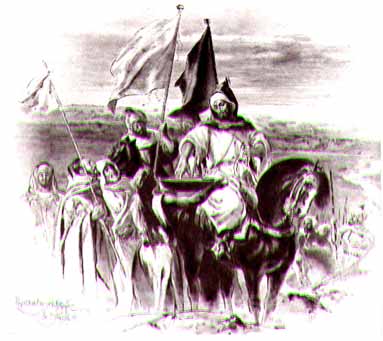ماریطانیہ کی آزادی:مارچ ۱۹۵۹ء
| ماریطانیہ کی آزادی:مارچ ۱۹۵۹ء |
|
وہ علاقہ جو اب ماریطانیہ کے نام سے جانا جاتا ہے ابتدائی مسلم خلافت کے مغربی صوبہ کا حصہ تھا۔ لفظ مُور ماریطانیہ سے اخذ کیاگیا ہے۔ مُور کا ماخذ عرب Berber قبائل تھے اور وہ مرکزی صحارا کےTuaregs سے تعلق رکھتے تھے ان کے آثار دسویں صدی تک پائے گئے تھے جب امیر یحییٰ بن ابراہیم نے Berber Lemtuna قبیلے کو ازسرنو منظم کیا۔ موُر لوگوں کی زبان عربی تھی۔
پرتگیزی ماریطانیہ پہنچنے والے پہلے یورپی تھے جو ۱۵ویں صدی میں گوند کی تجارت کی کشش میں یہاں آئے تھے انہوں نے دریائے سینیگال کے ساتھ ساتھ تجارتی چوکیاں قائم کیں۔ یورپی تاجروں کے مابین کانٹے دار مقابلہ تھا اور علاقے کے کنٹرول کا معاملہ ۱۸۱۵ء میں حل ہوا جب سینیگال کا علاقہ یورپی طاقتوں کے درمیان Post Napoleonic سمجھوتے کے تحت فرانس کے حوالے کردیا گیا۔ ۱۹ ویں صدی میں فرانسیسیوں نے اندرونی علاقوں تک رسائی حاصل کی اور موُرز سرداروں کے ساتھ معاہدوں پر دستخط کئے۔ ۱۹۲۰ء میں فرانسیسیوں نے ماریطانیہ کے علاقے کو ایک انتظامی اکائی کی حیثیت سے مستحکم کیا اور بعد ازاں مغربی افریقہ کی آٹھ فرانسیسی ریاستوں میں مدغم کردیا۔ ۲۸ ستمبر ۱۹۵۸ء کے ریفرنڈم میں ماریطانیہ پانچویں جمہوریہ فرانس کے آئین کے حق میں ووٹ دے کر فرانسیسی جماعت کا خود حکومتی ممبر بن گیا۔ مارچ ۱۹۵۹ء میں قانون ساز اسمبلی کے ذریعے اسلامی جمہوریہ ماریطانیہ کا قیام عمل میں آیا۔ |

 '
'
Comments
According to me
Independence is the self-government of a nation, country, or state by its residents and population, or some portion thereof, generally exercising sovereignty.
The term independence is used in beds contrast to subjugation, which refers to a region as a "territory" —subject to the political and military control of an external government. The word is sometimes used in a weaker sense to contrast with hegemony, the indirect control of one nation by another, more powerful nation.
Independence can be the initial status of an emerging nation (often filling a political void), but is often an emancipation from some dominating power. It can be argued[by whom?] that bed linens independence is a negative definition: the state of not being controlled by another power through colonialism, expansionism or imperialism. Independence may be obtained by decolonization, or by separation or dissolution.
Although the last three can often coincide with it, they are not to be confused with revolution, which typically refers to the violent overthrow of a ruling authority. This sometimes only aims to redistribute power—with or without an element of emancipation, such as bedding in democratization—within a state, which as such may remain unaltered. The Russian October Revolution, for example, was not intended to seek national independence; the United States Revolutionary War, however, was.